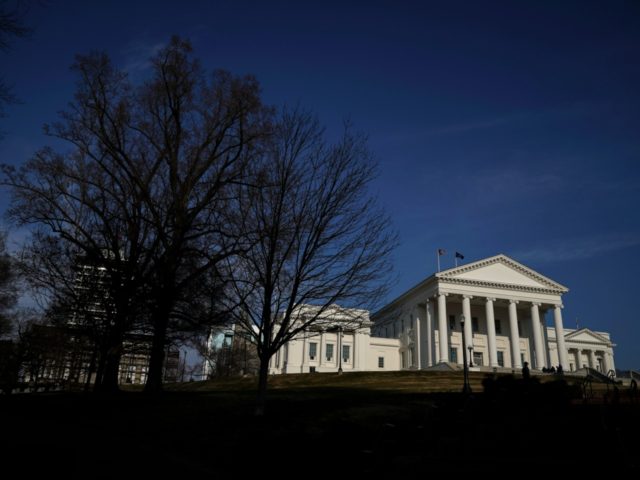WASHINGTON, DC – Lawmakers in the Virginia House lack standing to defend their redistricting plan in court when Virginia Attorney General Mark Herring refused to do so, a divided Supreme Court held on Monday.
Justice Ruth Bader Ginsburg wrote for the Court:
In 2011, after the 2010 census, Virginia redrew legislative districts for the State’s Senate and House of Delegates. Voters in 12 of the impacted House districts sued,” she began, “charging that the redrawn districts were racially gerrymandered in violation of the Fourteenth Amendment’s Equal Protection Clause.
The Republican majority in the Virginia House of Delegates intervened as defendants to defend that districting map. The lawsuit was assigned to a three-judge court comprised of two liberal judges and one conservative judge. That panel voted 2-1 that the map adopted by the Virginia legislature was unconstitutional, holding the map included racial gerrymanders that violate the Equal Protection Clause of the Fourteenth Amendment.
Herring – a partisan Democrat with a history of not defending his state’s laws when they clash with liberal priorities – refused to appeal that decision. Instead, the Virginia House appealed.
“The House, we hold, lacks authority to displace Virginia’s Attorney General as representative of the State,” the Supreme Court said as it dismissed the appeal. “We further hold that the House, as a single chamber of a bicameral legislature, has no standing to appeal the invalidation of the redistricting plan separately from the State of which it is a part.”
The 5-4 decision continued:
To reach the merits of a case, an Article III court must have jurisdiction. “One essential aspect of this requirement is that any person invoking the power of a federal court must demonstrate standing to do so.” The three elements of standing, this Court has reiterated, are (1) a concrete and particularized injury, that (2) is fairly traceable to the challenged conduct, and (3) is likely to be redressed by a favorable decision. Although rulings on standing often turn on a plaintiff’s stake in initially filing suit, “Article III demands that an ‘actual controversy’ persist throughout all stages of litigation.”
“A State has standing to defend the constitutionality of its statute,” the majority wrote, but added, “Authority and responsibility for representing the State’s interests in civil litigation, Virginia law prescribes, rest exclusively with the State’s Attorney General.”
“Virginia has thus chosen to speak as a sovereign entity with a single voice,” Ginsburg reasoned, joined by Justices Clarence Thomas, Sonia Sotomayor, Elena Kagan, and Neil Gorsuch.
“Nowhere in its motion did the House suggest it was intervening as agent of the State,” she continued. “That silence undermines the House’s attempt to proceed before us on behalf of the State. As [have we previously held], a party may not wear on appeal a hat different from the one it wore at trial.”
“The Court’s precedent thus lends no support for the notion that one House of a bicameral legislature, resting solely on its role in the legislative process, may appeal on its own behalf a judgment invalidating a state enactment,” the majority added. Additionally, “the Virginia constitutional provision the House cites allocates redistricting authority to the ‘General Assembly,’ of which the House constitutes only a part.”
“Although redrawing district lines indeed may affect the membership of the chamber, the House as an institution has no cognizable interest in the identity of its members,” the Court held.
“In short, Virginia would rather stop than fight on,” Ginsburg concluded. “One House of its bicameral legislature cannot alone continue the litigation against the will of its partners in the legislative process.”
Justice Samuel Alito dissented, joined by Chief Justice John Roberts and Justices Stephen Breyer and Brett Kavanaugh.
“It is clear, in my judgment, that the new districting plan ordered by the lower court will harm the House in a very fundamental way,” Alito began. “A legislative districting plan powerfully affects a legislative body’s output of work.”
“Districting matters because it has institutional and legislative consequences,” he continued. “To suggest otherwise, to argue that substituting one plan for another has no effect on the work or output of the legislative body whose districts are changed, would really be quite astounding.”
“It seems obvious that any group consisting of members who must work together to achieve the group’s aims has a keen interest in the identity of its members, and it follows that the group also has a strong interest in how its members are selected,” the dissenting justices reasoned. “And what is more important to such a group than the content of its work?”
“Apply what the Court says to a group other than a legislative body and it is immediately obvious that the Court is wrong,” Alito added. “Does a string quartet have an interest in the identity of its cellist? Does a basketball team have an interest in the identity of its point guard?”
He concluded that the answer to those questions is “yes,” and therefore that the Virginia House should have standing to defend the map in federal court.
The case is Virginia House of Delegates v. Bethune-Hill, No. 18-281 in the Supreme Court of the United States.
Ken Klukowski is senior legal analyst for Breitbart News. Follow him on Twitter @kenklukowski.

COMMENTS
Please let us know if you're having issues with commenting.